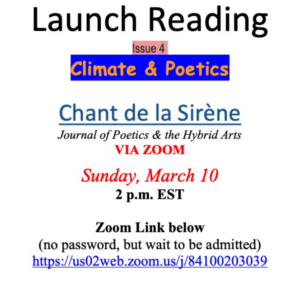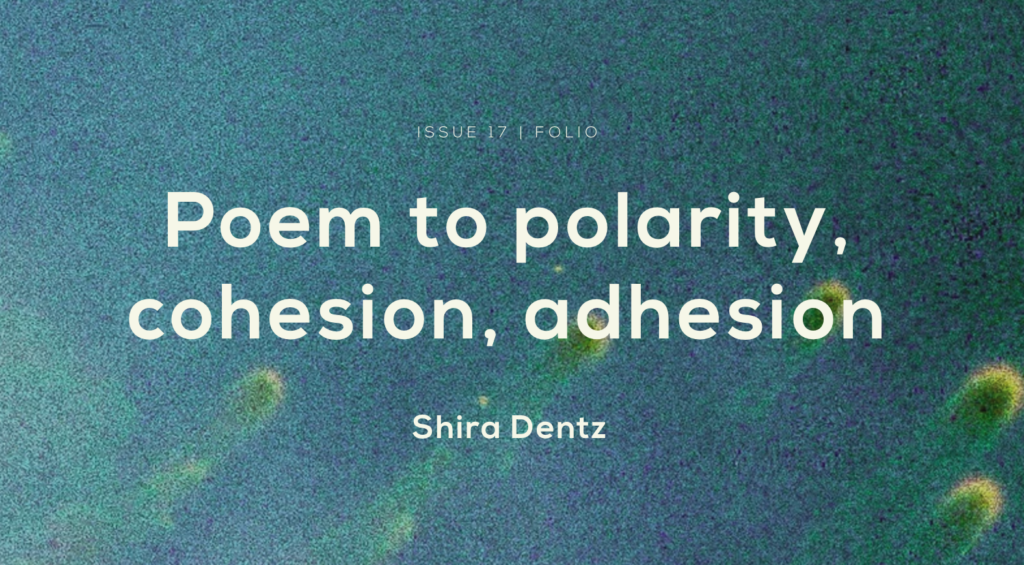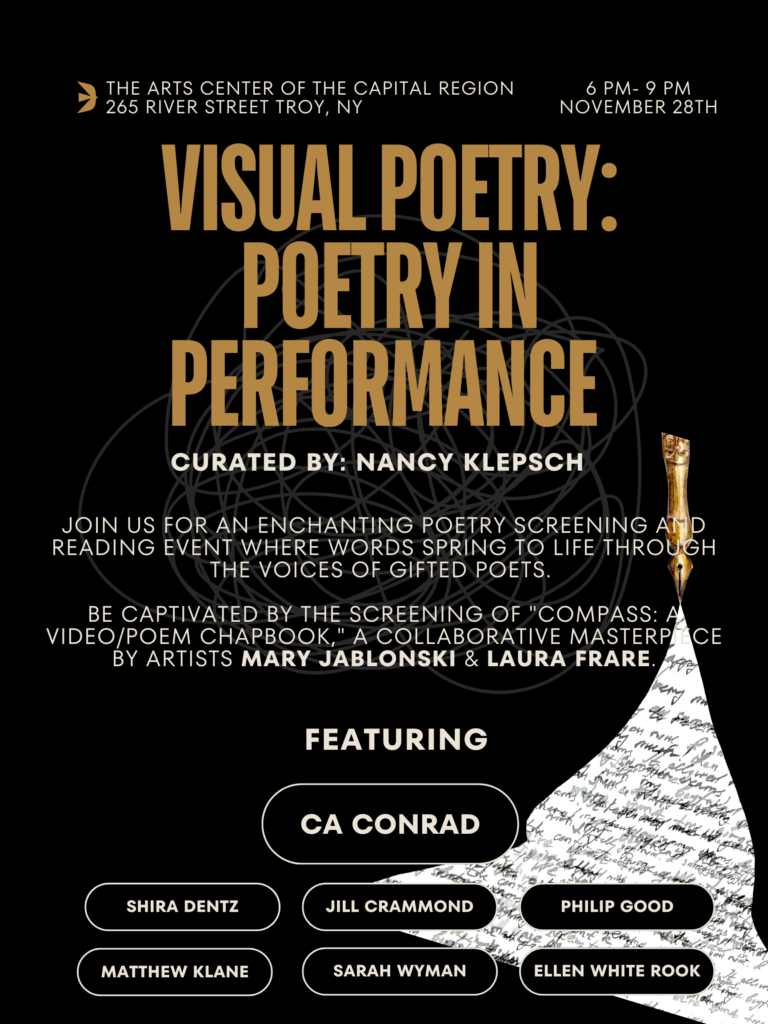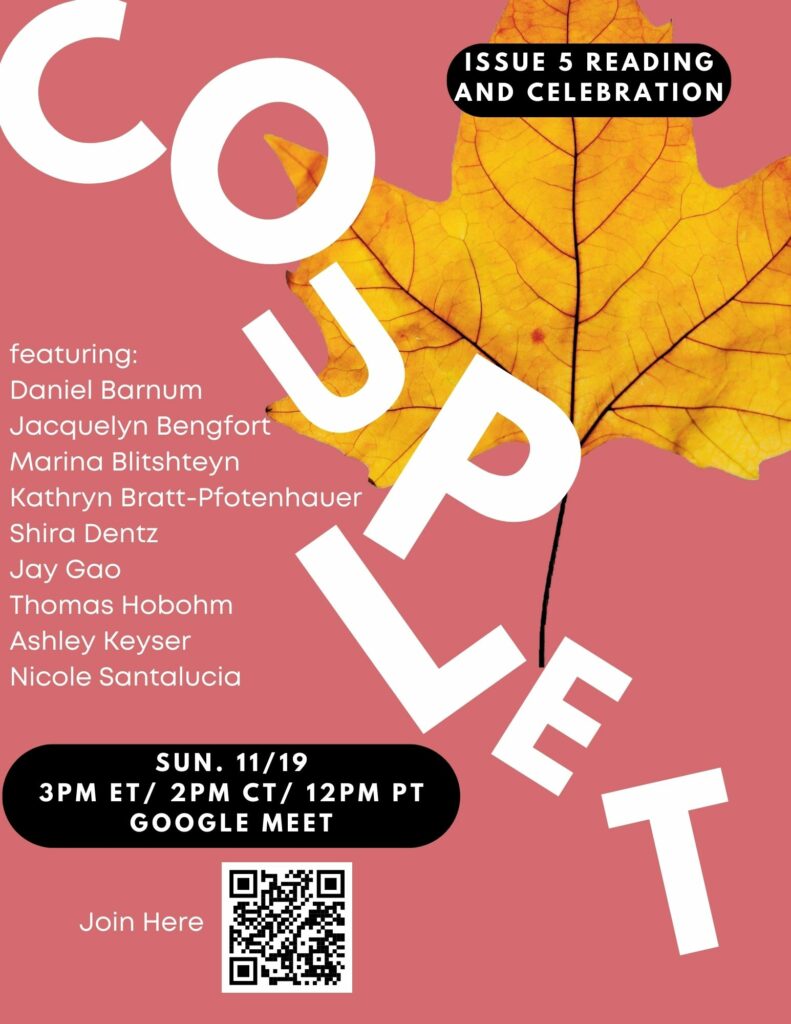Publisher, Editor, Critic, and Writer Laura Hinton, has compiled another conceptually and creatively rich and inspiring issue of Chant de la Sirene: Journal of Poetics & the Hybrid Arts. This fourth issue’s theme is Climate & Poetics. Laura’s introduction to this issue is a must-read, as is its contents which represent a range of international artists and writers. I’m honored to have work included in this important and amazing issue, which is a call to popular and urgent activism and can be found here
-
Recent Posts
Archives
- May 2025
- March 2025
- February 2025
- January 2025
- December 2024
- October 2024
- May 2024
- April 2024
- March 2024
- November 2023
- October 2023
- September 2023
- April 2023
- March 2023
- February 2023
- October 2022
- August 2022
- March 2022
- February 2022
- January 2022
- November 2021
- September 2021
- July 2021
- April 2021
- March 2021
- February 2021
- January 2021
- December 2020
- November 2020
- October 2020
- September 2020
- August 2020
- July 2020
- June 2020
- May 2020
- April 2020
- March 2020
- February 2020
- January 2020
- December 2019
- October 2019
- September 2019
- June 2019
- May 2019
- March 2019
- February 2019
- January 2019
- December 2018
- November 2018
- October 2018
- September 2018
- August 2018
- June 2018
- May 2018
- April 2018
- March 2018
- February 2018
- November 2017
- July 2017
- May 2017
- March 2017
- December 2016
- November 2016
- October 2016
- September 2016
- July 2016
- June 2016
- May 2016
- April 2016
- March 2016
- February 2016
- January 2016
- December 2015
- September 2015
- August 2015
- July 2015
- March 2015
- December 2014
- November 2014
- October 2014
- July 2014
- June 2014
- May 2014
- March 2014
- January 2014
- December 2013
- November 2013
- October 2013
- August 2013
- July 2013
- June 2013
- May 2013
- April 2013
- March 2013
- December 2012
- May 2012








